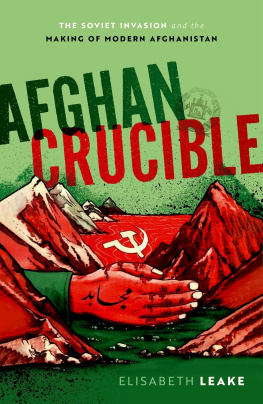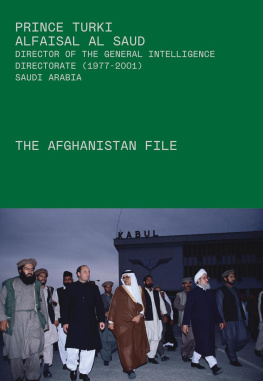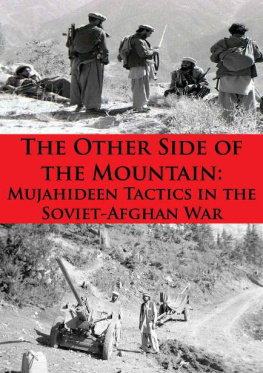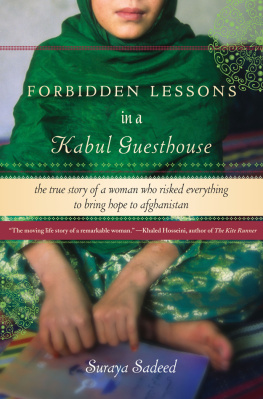CONFESSIONS OF A MULLAH WARRIOR
CONFESSIONS OF A MULLAH WARRIOR
MASOOD FARIVAR

Copyright 2009 by Masood Farivar
All rights reserved. No part of this book may be reproduced in any form or by any electronic or mechanical means, or the facilitation thereof, including information storage and retrieval systems, without permission in writing from the publisher, except by a reviewer, who may quote brief passages in a review. Any members of educational institutions wishing to photocopy part or all of the work for classroom use, or publishers who would like to obtain permission to include the work in an anthology, should send their inquiries to Grove/Atlantic, Inc., 841 Broadway, New York, NY 10003.
Published simultaneously in Canada
Printed in the United States of America
eBook ISBN-13: 978-1-5558-4823-1
Atlantic Monthly Press
an imprint of Grove/Atlantic, Inc.
841 Broadway
New York, NY 10003
Distributed by Publishers Group West
www.groveatlantic.com
In memory of the victims
of Afghanistans ongoing war
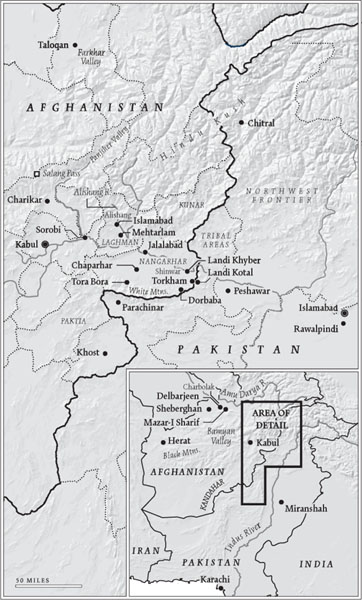
CONFESSIONS OF A MULLAH WARRIOR
Prologue
April 1989The wind whips across a dry, narrow canal outside Jalalabad, Afghanistan. The afternoon sun warms me through my soiled and sweat-drenched piran tuban (tunic and pants) as I stand over a pile of mortar shells, ammunition boxes, rifles, and blankets. To my left, our loader lies in a pool of blood, his right leg blown off above the knee. Doctor Hamid, who is also the mortar gunner, gives him a shot of tranquilizer and radios for help. Now he asks Awalgul to take over.
Laghmani, Awalgul barks at me, give me good rounds.
Were taking heavy fire from a hilltop a mile across the plain, and Awalgul wants to respond with good mortar rounds, the kind that fly with a beautiful upward trajectory right into the heart of enemy territory. The faulty rounds have bad serial numbers and sometimes explode inside the mortar.
Laghmani, hurry up, he shouts as he slides another round into the steaming mortar. Putting his fingers into his ears, he cowers as the round shoots out.
This is the third week in the battle of Jalalabad, the mujahideens final march to liberation. After nine years of occupation, Soviet troops pulled out of Afghanistan in mid-February, leaving behind the embattled regime of Najib. Before their pullout, we were convinced victory would be swift and decisive. Jalalabad would be captured, a temporary government would be established, and Kabul and the other Communist-controlled cities would fall one after the other. But after a few government outposts went down, the battle drew to a stalemate, and the Jozjani militia, which forms the backbone of the enemy defenses and is notorious for its ruthlessness, has received fresh reinforcements. Their guns continue to pound our position for half an hour.
Two pickup trucks suddenly turn up the road. Several armed men sprint across the field toward us, a distance of two hundred yards. As they approach, I spot my twenty-five-year-old cousin Saboor among them. Shy, soft-spoken, and thin as a reed, hes traveled from Peshawar to assist with supplies.
We need to go to Farm Number Four, he says, referring to a state citrus farm under our control.
Then Saboor turns to Awalgul. Tall and broad-shouldered with boyish good looks, Awalgul is a jokester (he sarcastically nicknamed me Laghmani after the denizens of my ancestral province Laghman, who have a reputation for shrewdness) and tries to keep our spirits up. He decides that I should go to Farm Number Four with Saboor. We load the wounded soldier into the pickup, which then speeds off down the potholed road toward the Pakistan border.
Saboor and I follow in a second truck. I sit in the back with half a dozen other fighters wrapped in woolen patoo shawls and carrying rifles. Every couple of hundred yards, we hear the whoosh of an incoming artillery round and the driver slams on the brakes. His timing is good, but when a round lands particularly close to us, I quietly murmur the declaration of faith just in case: Ashhaduan la illahah, illalahu, wa Ashhaduanna Muhammadan Abduhu wa rasulluhuI bear witness that there is no god but God, I bear witness that Muhammad is his Servant and Messenger.
A couple of miles later, we turn onto a narrow dirt road and stop on the edge of the farm. I dont understand why weve stopped in an exposed area until I turn and look over my shoulder. A young man, not much older than I, is chained to the stump of a tall cypress tree, its branches sheared off by shrapnel. Behind the stump is a crater, the work of a SCUD missile. While a plane hums overhead, invisible and out of antiaircraft range, bursts of machine gun fire crackle across the farm. An artillery round explodes in a huge plume of smoke and dust about thirty yards away from the man. He looks anxiously across the open plain and somberly moves his lips.
Standing up in the back of the truck to look closer, we see the man turn his head toward us. His expression reminds me of a virgin groom on his wedding night, his spooky eyes tiny and black, shyly sparkling with anticipation. For a moment I suspect hes an Arab who, as part of a vendetta, must have been tied up by a vengeful Afghan. The driver and Saboor exchange words. Saboor sticks his head out of the window and gestures at the man.
Do you know who that is? he asks. He is an Arab and he wants to become a shaheed. A martyr.
As a logistics and liaison officer, Saboor has, over the years, arranged for hundreds of Arab volunteers to fight in Afghanistan.
Who brought him here? I ask.
I dont know, but hes one of the crazy ones. I just wanted to show him to you, he says matter-of-factly.
Who chained him? I ask.
Probably one of his friends. There are a lot of them here, you see. They all want to become shaheeds.
Later Saboor tells me that several such men had been spotted around the farm since the start of the battle of Jalalabad. They chained themselves to trees during the day in hopes of achieving martyrdom before the sun went down, and by evening their comrades would come to pick them up, dead or alive.
Hes picked a nice spot, I say, tongue in cheek, because I really dont know what to say at all. May God grant his wish and make him a shaheed.
In the back of my mind, though, this didnt make any sense. Clearly this man wasnt afraid of death. So why did he bind himself? Did he feel his cowardice would get the better of him on the battlefield? Was he fearful of being denied the promise of eternal life in the cool shade of palm and apple trees, and the company of black-eyed damsels? Why did he travel such a great distance to Afghanistan? Not to fight, but to tie himself to a tree?
I hear the unmistakable whistle of an incoming mortar round. The driver hits the gas. Instinctively, everyone in the back of the truck crouches down. As we speed away, the chained man shouts, Allahu Akbar!God is great! One of my comrades mouths a prayer for protection against the evil eye.
Since joining the resistance in 1987, and later working as a combat reporter, Id met dozens of Arab volunteers: young, naive, and fanatically religious men drawn to the battlefields of Afghanistan by the promise of eternal life. When the battle of Jalalabad began in earnest a couple of weeks ago, I met two Arabs near our mortar position. We were taking cover in a trench during a particularly fierce firefight. The Arab men were jittery, and from the way they held their rifles it was clear they had never been in a battle before. Knowing a smattering of Koranic Arabic, I tried to engage them in conversation without sounding like a seventh-century bedouin, but they brushed me off, either unable to understand what I said or uninterested in talking.
Next page

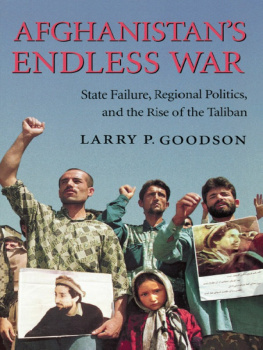
![Lester K. Grau - The Other Side of the Mountain: Mujahideen Tactics in the Soviet-Afghan War [Illustrated Edition]](/uploads/posts/book/326105/thumbs/lester-k-grau-the-other-side-of-the-mountain.jpg)
